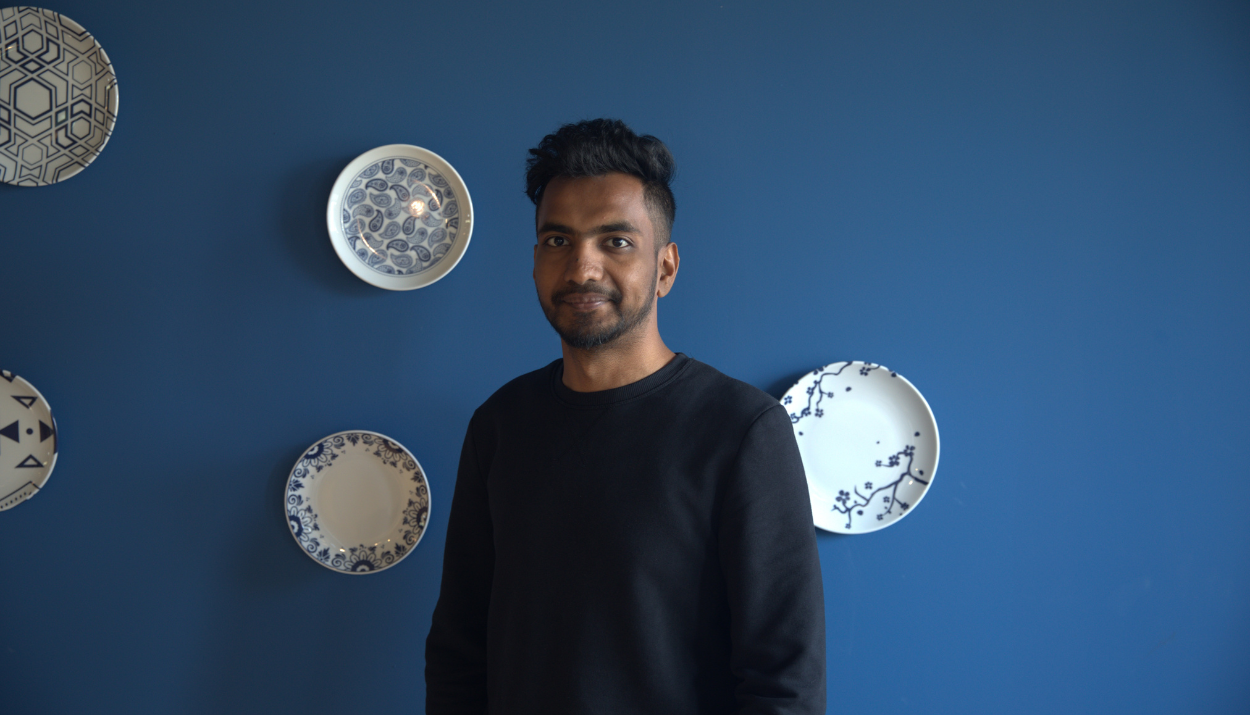Such training creates a bond
24 october 2022
Kishore Kumar (26) moved from India to the Netherlands. Initially only for his studies, but he decided to stay. He has never regretted that choice. Learning Dutch was a logical choice for Kishore and that brought him to STE.
How did you end up here?
“In 2017, I moved to the Netherlands. I then started my master's degree in Mechanical Engineering at the University of Twente. I ended up in Eindhoven through an internship. After finishing my studies, I found a job at Vanderlande Industries in Veghel.”
How did you come into contact with STE Languages?
“STE is a permanent partner for Vanderlande. Just like colleagues who want to learn Dutch, STE was a logical choice for me.”
What is your overall impression of STE?
“STE is professional; the website, the building and the study materials. Everything is well organized, and the coffee is delicious!”
Why is it important for you to learn Dutch?”
“I actually only came here to study, but when I had finished, I decided to stay. Life is great here. I have never regretted that choice. It is far from my family, but everything has pros and cons. Building a new life also includes learning the language. That is useful for my work. Although English is very common at Vanderlande, my colleagues are Dutch. It's nice to be able to talk to them in their own language.”
Do you experience cultural differences between the Netherlands and India? Can you give an example of that?
“Cycling is very normal in the Netherlands, we don't do that in India. A colleague once said to me: ‘why don't you come to work by bike? It's only 25 kilometers!’ You would never say that in India. You don't cycle more than 3 kilometers there, also because it is so hot.”
You have taken various group training courses at STE. Can you tell us about your learning experiences?
“The teachers are patient and open to all questions. You can always email them with questions or for tips. It is important that you try to talk to other people on the course so that you can help each other. You eventually gain confidence. Such training creates a bond and we sometimes keep in contact outside the class as well.”
When did you first notice that you had started to understand Dutch?
"In the beginning, I didn't know anything. I didn't understand the grammar rules and I had little vocabulary. From around level A1+, I knew how to make a sentence. From then on, I was able to talk to colleagues about 'little bits and pieces'. When I was at level A2+, I gave a presentation on a technical subject for people who did not have a technical background. I got good feedback on that. Then, I gave a presentation to my colleagues. They do have technical knowledge and therefore listened differently, but fortunately it was also clear to them. For me, that was the moment that I felt I had a grip on it.”
What are the benefits of language training for your daily life?
“When I go to a restaurant or supermarket, I speak Dutch. In the beginning, it went quite slowly. First, I translated from Tamil to English and only then to Dutch. I wanted to do it grammatically correctly, so I thought about it carefully and that takes time. Now I start sentences directly in Dutch, which makes it easier for me to have a conversation.”
You are no longer following training at STE. How do you ensure that you continue to develop yourself?
“I have achieved my learning goals. The next step is to speak a lot more Dutch and less English. I, increasingly, make appointments with colleagues in Dutch. We also speak Dutch during lunch.”
What is your favorite Dutch word or expression?
“I would choose ‘Scheveningen’, because of the pronunciation. Another very special word is 'uitzondering'. The Dutch grammar rules are complex. After every new rule you learn, there is another exception.”
Do you have any tips for new students?
“In the beginning you don’t understand Dutch. It takes time to see through it. To be honest, I sometimes had doubts: why do I put so much time and energy into this? There are so many grammar rules, with all sorts of exceptions. But, gradually, it gets better and you gain confidence. So, persevere.”
What is life in Eindhoven like?
“When I came to Eindhoven, it was difficult and I didn't know anyone. I got to know people through the gym and my student accommodation. Slowly, I have built up a social network, especially within the international community. It is difficult to make contact with Dutch people. My colleagues are not friends yet. In India, work and private life overlap much more. Here everyone says 'bye!' at 5 pm and goes home. It took me a while to get used to that.”
What will your life look like in ten years?
“Then, I will still be living in Eindhoven. I want to develop within the company and for that I need to further improve my Dutch. The better I speak Dutch, the more I can achieve. That's what I'm going for!”


